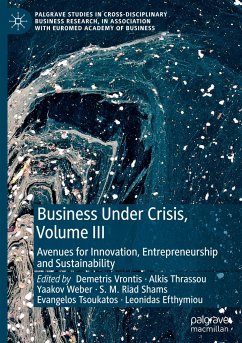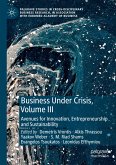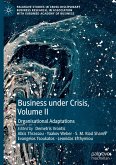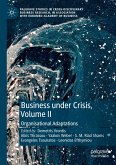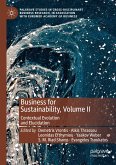From recurring episodes of great depression, oil crises, political crises, wars, debt crises, to the ongoing climate change, there is a constant pressure on businesses to cope with critical events. However, throughout history, crises have been pivotal in advancing businesses and societies. This contributed volume approaches crisis not simply as a source of problems, but also as a set of choices. It seeks to explore critical events as possible opportunities for sustainability, through process improvement, creativity, innovation and entrepreneurship.
Chapters reveal that times of crisis provide opportunities for new start-ups, creativity, resilience, organisational change, and revitalisation. This book also emphasises the importance of sustainability, driven either by the market or as a response to critical events. Within the wider attempt to explore avenues for Innovation, Entrepreneurship and Sustainability at times of crisis, the book is loosely organised in three thematic sections: organisational responses to crisis; digitisation, and how technology facilitates or hinders sustainability under conditions of crisis; and SMEs, Family Firms (FF), Entrepreneurship, which explores how critical events offer opportunities for innovation.
Chapters reveal that times of crisis provide opportunities for new start-ups, creativity, resilience, organisational change, and revitalisation. This book also emphasises the importance of sustainability, driven either by the market or as a response to critical events. Within the wider attempt to explore avenues for Innovation, Entrepreneurship and Sustainability at times of crisis, the book is loosely organised in three thematic sections: organisational responses to crisis; digitisation, and how technology facilitates or hinders sustainability under conditions of crisis; and SMEs, Family Firms (FF), Entrepreneurship, which explores how critical events offer opportunities for innovation.

